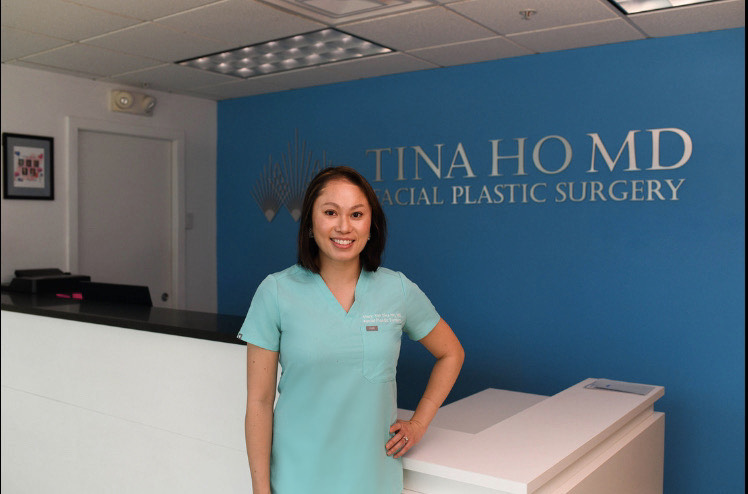Table of Contents
What is Preservation Facelift?
Preservation facelift surgery is a cutting-edge technique designed to provide patients with a more natural-looking appearance with a shorter recovery time. This procedure reduces the degree of trauma caused by traditional facelifts allowing patients to bounce back faster after surgery.
Preservation Facelift Procedure
The preservation facelift technique aims to reposition the deep muscles of the face rather than simply tightening the skin. Accessing the deep muscular layers of the face allows the surgeon to reposition and lift the underlying structures to give a more natural appearance. This additionally involves less elevation of the skin and reduces soft tissue damage facilitating a smoother, easier recovery. By leaving the skin more connected to the deeper soft tissue structures, the facelift effect is more natural and more powerful.
Traditional facelift procedures focus on pulling the skin tight to reduce sagging, wrinkles, and fine lines; however, this often leaves patients with longer recovery and an unnatural appearance. This limitation has been addressed with the preservation facelift surgery which targets the deep muscular layer with less dissection of the skin layer.
Restoring one’s natural beauty without the appearance of having undergone surgery is best achieved with a preservation facelift. Understanding the effects of aging on the underlying muscles has allowed surgeons to target this layer and restore it to its natural position to achieve comprehensive rejuvenation of the face.
About Dr. Tina Ho

Dr. Tina Ho is a fellowship-trained, double board-certified facial plastic and reconstructive surgeon and board-certified head and neck surgeon, specializing exclusively in cosmetic surgery of the face. Dr. Ho trained with world-renowned surgeons in the field of cosmetic plastic surgery and uses her expertise in head and neck anatomy to provide exceptional results for her patients. She has observed and trained in the preservation facelift technique and routinely uses it in her surgical practice.
Dr. Ho is meticulous in planning her surgical approach to ensure every surgery is approached with precision and care. Providing a welcoming, relatable approach to cosmetic surgery, allows her patients to feel comfortable while empowering them to embrace their natural beauty.
Dr. Ho’s philosophy has always been a less is more approach and a preservation facelift exemplifies this by restoring natural beauty rather than altering the face to remove wrinkles.
Understanding Preservation Facelift
The aging process results in sagging of the skin and muscular layers of the face causing people to appear older than their stated age. Understanding these muscular and deeper tissue changes has allowed surgeons to better manage the aging process and simply restore the natural appearance of the face.
Where a traditional facelift focuses on tightening the skin to reduce wrinkles and sagging, a preservation facelift vertically raises the muscular layer of the face to its original position. The preservation facelift technique also addresses the fat compartments of the face, repositioning it in a way that restores the natural volume and contours of the face. The preservation facelift approach can be performed with less skin elevation and in shorter time while achieving beautiful, natural results.
Ideal Candidates for Preservation Facelift
Preservation facelift surgery is ideal for men and women who are unhappy with the unwanted signs of aging. This technique is ideal for patients wanting a quicker recovery, a more natural appearance, and longer-lasting results.
Ideal candidates should be in good mental and physical health without significant medical conditions that can increase the risks of complications. Non-smokers or those willing to quit smoking and patients not taking blood thinning medications are ideal candidates for facelift surgeries. To maximize the overall success of the procedure, patients must have realistic expectations for the procedure.
Benefits of Preservation Facelift
Preservation facelifts offer several benefits to patients wishing to pursue facial rejuvenation including:
- Natural results. Raising the muscular layer better preserves the natural contours and features of the face.
- Long-term benefits. Addressing the underlying structures provides longer-lasting results than traditional facelifts.
- Reduced recovery time. Less dissection of the skin layers and reduced need for a drain shorten the downtime of patients.
- Minimal scarring. Incisions are carefully hidden within the hairline and the natural contours of the ear lessening the risk of visible scars.
- Fewer complications. Minimizing dissection and aggressive manipulation reduces the risk of complications.
The Preservation Facelift Procedure
Preservation facelift surgery is a less invasive approach to the deep plane facelift and can be performed under twilight sedation using intravenous medications and local anesthetics or under general anesthesia.
Incisions hidden in the hairline and contours of the ears are first made, and the facial and neck skin are elevated. The deeper SMAS layer, a tough layer of tissue from the head to the neck to which the muscles of the face attach, is identified and accessed. Mobilization of this layer allows a more comprehensive correction as it is lifted vertically and resuspended. The deeper layer of correction reduces the trauma of the surgery, shortens recovery, and improves the degree of correction. Overall less skin is dissected, which leads to less trauma of the tissues and quicker recovery.
The procedure is typically completed within four to five hours; however, this can be longer if additional procedures are performed. Once the surgery is completed, you will recover at our facility and be discharged home the same day.
Recovery and Aftercare
Compared to a traditional facelift, the preservation facelift recovery is shorter and may not require managing a drain. The majority of swelling and bruising resolves in 10 to 14 days, while many patients feel presentable at one month out. Heavy lifting, strenuous activities, smoking, and excessive sun exposure should be avoided for the first two weeks. After this time, a progressive return to normal activities is advised.
Post-operative dos and don’ts:
- Use ice and elevate the head to reduce swelling and discomfort.
- Avoid bumping and hitting the face, head, and neck.
- Properly clean and care for incisions.
- Wear post-op garments if instructed to help support tissue healing.
Schedule your Preservation Facelift Consultation Today
Treat yourself to the best in preservation facelift in Philadelphia. Call our Philadelphia Facial plastic surgery office today at 267-578-3064 (Philadelphia) or 610-688-3363 (Wayne) to experience the benefits of a preservation facelift.
Book Now
“My attention to detail combined with my artistic intuition as a fellowship-trained, double board-certified facial plastic surgeon ensures natural, aesthetically pleasing results for every scar revision patient.”
– Dr. Tina Ho

Book Now
Preservation Facelift FAQ’s
What is the difference between a preservation facelift and a deep plane facelift?
Both techniques involve accessing the facial deep plane to provide a more natural, longer-lasting result. However, a preservation facelift is associated with a shorter recovery time than a deep plane facelift. The reason for the shorter recovery is due to less skin dissection and the use of a more anatomic plane to mobilize tissues. This reduces inflammation, swelling, and discomfort after surgery. Preservation facelift often centers the deep plane facelift technique but involves less skin elevation.
How does a preservation facelift differ from a traditional facelift?
A preservation facelift accesses the deep fibromuscular layer (SMAS) of the face to provide a comprehensive rejuvenation by restoring normal muscle attachments, unlike a traditional facelift that focuses on removing excess skin and pulling the superficial tissues tighter to reduce wrinkles and lines. Preservation facelift surgery is less invasive and involves less downtime.
Approaching and resuspending the deep layers provides improved correction for a more natural-looking appearance and longer-lasting results than a traditional facelift.
What are the benefits of a preservation facelift?
Preservation facelifts offer several benefits:
- Better preservation of the natural contours and features of the face.
- Improved longevity of the results.
- A shorter, smoother recovery.
- Less inflammation, swelling, and discomfort.
- Carefully hidden incisions to minimize visible scarring.
- Lower chance of drains placed after surgery.
- A less aggressive manipulation and dissection result in fewer complications.
Can a preservation facelift be combined with other procedures?
Yes. A preservation facelift can be combined with several other procedures depending on the goals and desires of the patient. Commonly combined procedures include eyelid surgeries (blepharoplasties), brow lifts, lip lift, and skin resurfacing techniques. Combining procedures can achieve a more comprehensive, dramatic rejuvenation and one recovery period, ultimately saving time and money.
from The American Academy Of Facial Plastic And Reconstructive Surgery.





